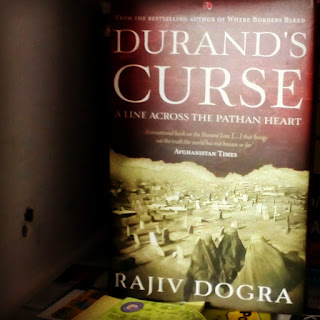‘Durand’s Curse’ by Rajiv Dogra details the events and
circumstances leading to the fateful agreement of 12th November,
1893CE when the Durand’s Line separating the present day Afghanistan and
Pakistan came into existence. It also encompasses a comprehensive and
contemporary view of present day Afghanistan, lamenting the monumental
injustice meted to Afghans, especially the Pathans.
In mid 20eth Century, as many countries across Asia, Africa
and South America emerged Independent from the clutches of Colonialism, lines
were arbitrarily drawn by few powerful men, separating and creating nations.
Sykes-Picot, Radcliff are to name among a few. But, perhaps the most chaotic
and arbitrary one was the ‘Durand’s Line’. In a crazy and concocted ‘Great
Game’, Afghanistan was envisioned as a buffer zone separating British India
from Tsarist Russia rather than an Independent country.
Spooked by unsubstantiated claims of Russian Invasion of
India, the British (then East India Company) replaced the immensely popular
King of Afghanistan, Dost Mohammad Khan with Shuja Shah. However, the fiercely
independent Afghans struck back, and what followed for the next century was an
era of trickery and bloodshed. After Partition of India, Afghanistan’s position
went from bad to worse, as vouched by it’s recent history. A disastrous civil
war, ambitious neighbors and changing geopolitical scenario means that another
‘Great Game’ is at play!
It is a must read for anyone interested in the Indo-Afghan
Foreign affairs/Afghanistan/Geopolitics of Asia.
Book – Durand’s Curse by Rajiv Dogra (English)






